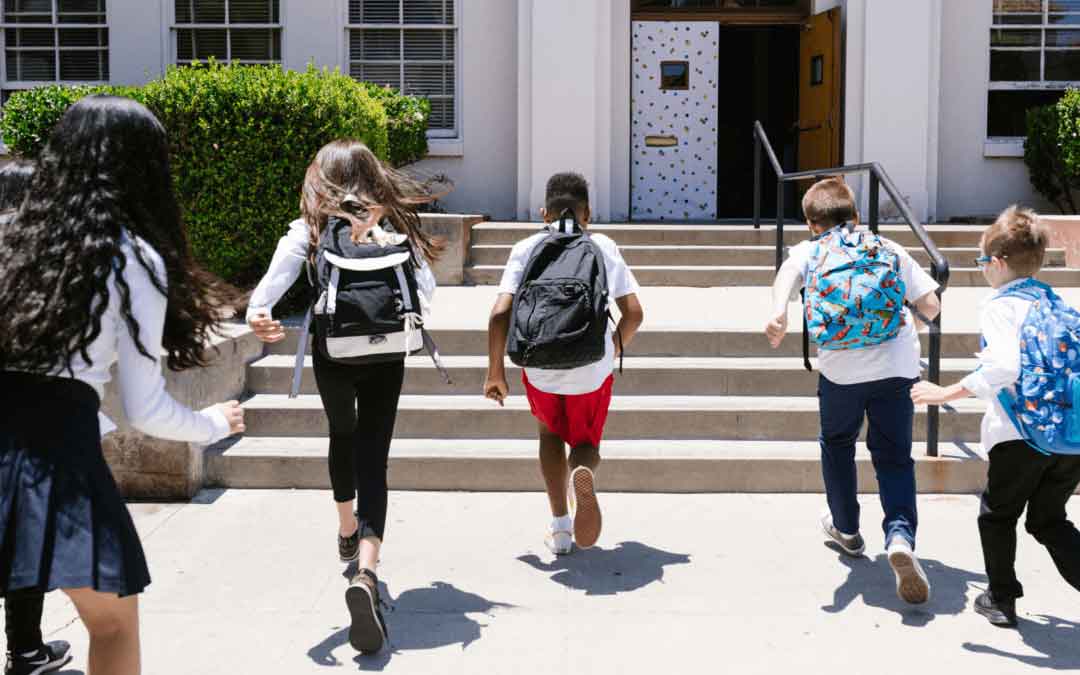The end of summer can bring a wave of excitement – new clothes, fresh notebooks, and the promise of another year of learning. But for many students (and their parents!), the back-to-school transition can also trigger anxiety and stress.
Whether your child is starting kindergarten or navigating the pressures of college, therapy can be a powerful tool to equip them with the skills they need to thrive in the academic year.
How Can I Help My Child Manage Back-to-School Stress?
As a parent, you play a crucial role in supporting your child’s emotional well-being during the back-to-school transition. Here are some ways you can help:
- Establish routines: Predictability is key for managing stress. Help your child develop a consistent sleep schedule, meal routine, and homework time to create a sense of normalcy.
- Open communication: Talk openly about back-to-school anxieties. Listen to your child’s concerns and validate their feelings. Let them know you’re there for them and you’ll work through any challenges together.
- Practice relaxation techniques: Deep breathing exercises, mindfulness meditation, and progressive muscle relaxation can all be helpful tools for managing anxiety in the moment.
- Positive reinforcement: Celebrate your child’s efforts, big and small. Positive reinforcement builds confidence and motivates them to keep going.
While these strategies are fantastic, there are times when professional support might be needed. Therapy can provide a safe space for your child to explore their anxieties, develop coping mechanisms, and build resilience.
What are the Common Causes of Back-to-School Anxiety in Teenagers?
Teens face a unique set of pressures when it comes to back-to-school anxiety. Here are some common triggers:
- Academic expectations: The pressure to perform well, upcoming tests, and navigating challenging coursework can all contribute to anxiety.
- Social dynamics: Fitting in with peers, managing friend groups, and navigating potential conflicts can be a source of stress for many teenagers.
- Body image concerns: Teens are often self-conscious about their appearance, and the back-to-school transition can amplify these anxieties.
- Fear of the unknown: Starting a new school, changing classes, or facing new teachers can all be sources of anxiety for teens.
Therapy can equip teens with the tools they need to manage these anxieties, build communication skills, and develop a healthy sense of self-esteem.
How Does Therapy Help With Back-to-School Stress for Students of All Ages?
Therapy is a valuable resource for students of all ages, from elementary school to college.
Here’s how it can help:
- Identify triggers: Therapists can help students identify the specific situations or thoughts that trigger their anxiety. This self-awareness is the first step to developing coping mechanisms.
- Develop coping skills: Therapy provides students with tools to manage anxiety in the moment, such as relaxation techniques, cognitive behavioral therapy (CBT), and mindfulness exercises.
- Communication and social skills: Therapists can help students develop communication skills to express their needs effectively and navigate social situations with confidence.
- Time management and organization: Students can learn strategies for time management, organization, and setting realistic goals to reduce academic stress.
- Building self-esteem: Therapy can help students develop a positive self-image and build resilience to navigate challenges.
Remember, therapy is not just about addressing problems; it’s about empowerment. By equipping students with the tools they need to manage stress, build confidence, and advocate for themselves, therapy sets them up for success not just in school, but in all aspects of life.
What are Effective Stress Management Techniques for College Students Returning to School?
College students face a unique set of pressures, from academic workload to managing independence and social anxieties. Here are some effective stress management techniques:
- Time management: Create a weekly schedule that includes time for classes, studying, leisure activities, and sleep. Use a planner and set realistic goals to avoid feeling overwhelmed.
- Prioritization: Learn to prioritize tasks and focus on the most important ones first. Don’t be afraid to say no to commitments that will overload your schedule.
- Healthy habits: Prioritize sleep, exercise regularly, and maintain a balanced diet. Taking care of your physical health is crucial for managing stress and maintaining mental well-being.
- Support network: Build a strong support network of friends, family, and professors. Don’t be afraid to reach out for help when you need it.
- Seek professional help: College counseling centers are a valuable resource for students struggling with stress, anxiety, or depression.
By incorporating these techniques and seeking professional support when needed, college students can navigate the academic year with greater confidence and a healthier mental well-being.
Remember, back-to-school can be a time of both excitement and stress. Don’t be afraid to normalize these feelings and encourage your child, or yourself, to seek help. Therapy is a judgment-free zone that can equip students of all ages with the tools they need to not just survive, but thrive, in the academic year.
Here are some additional resources that you might find helpful:
- The National Institute of Mental Health: National Institute of Mental Health Back to School [invalid URL removed]
- The Jed Foundation: The Jed Foundation (Focuses on mental health resources for teens and young adults)
- The American School Counselor Association: American School Counselor Association
With the right support system and a focus on well-being, the back-to-school transition can be a positive and empowering experience for everyone involved.
Lets Connect


